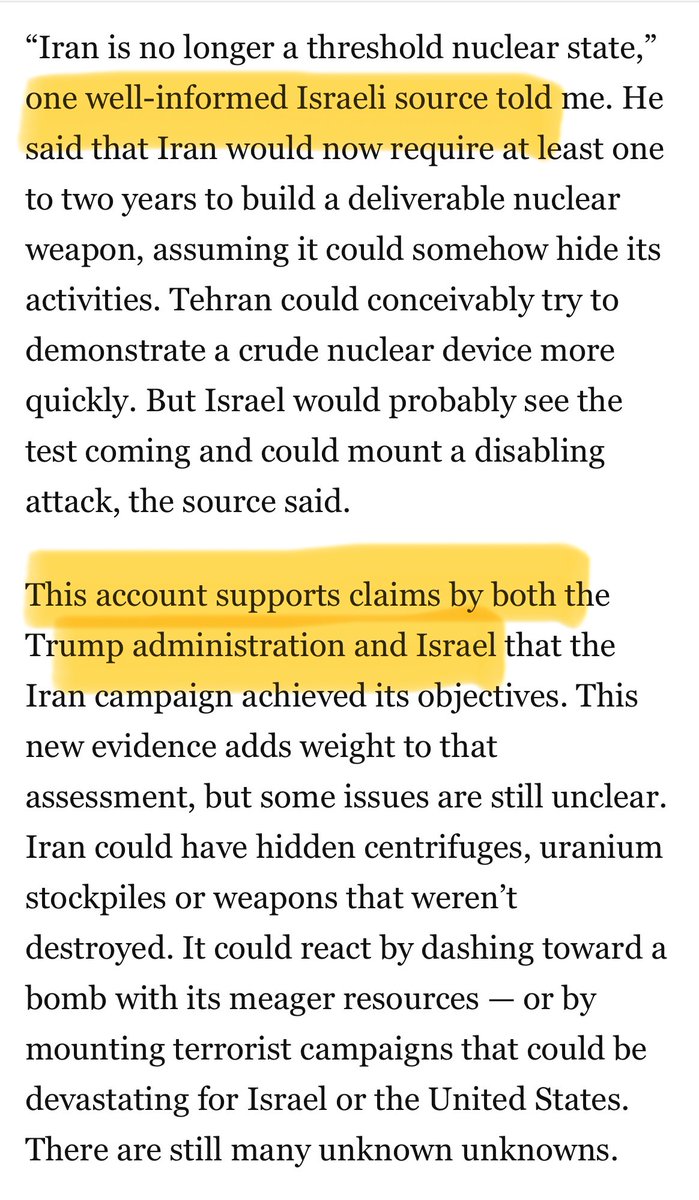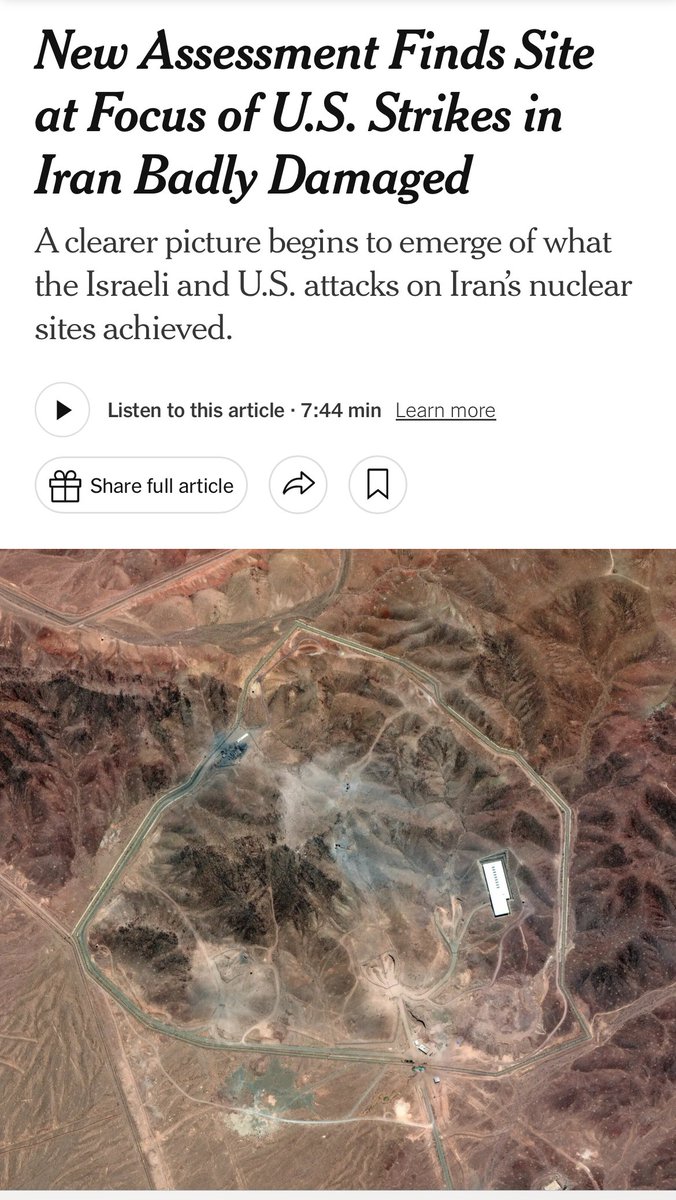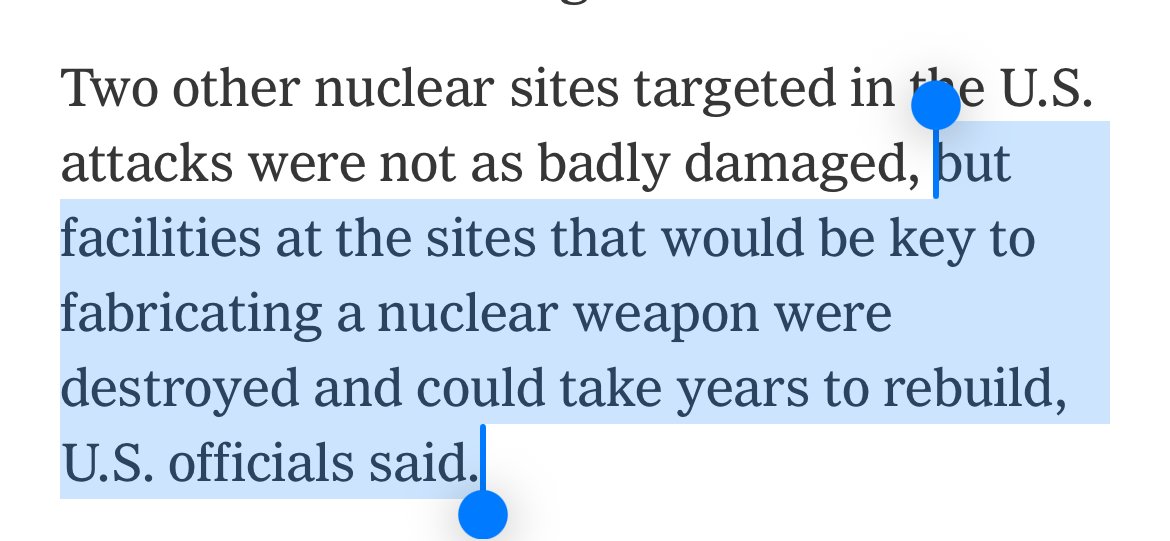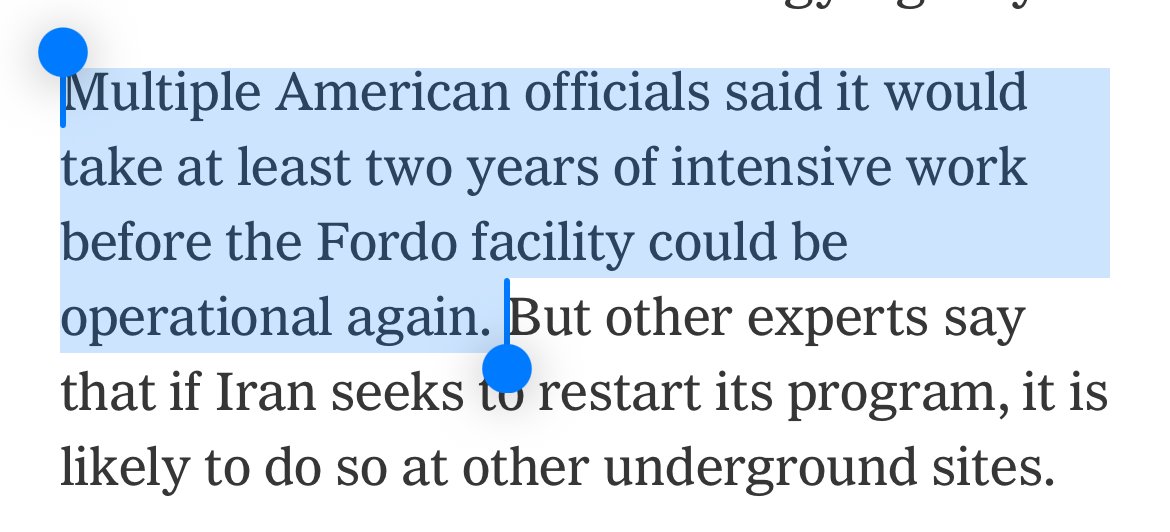According to @WSJ, the U.S. has given Russia a list of arms control proposals that could be part of a way to defuse the Ukraine crisis.
Could this work? How, specifically, could arms control help?
A thread. (1/n)
wsj.com/articles/u-s-d…
Could this work? How, specifically, could arms control help?
A thread. (1/n)
wsj.com/articles/u-s-d…
Let's acknowledge from the outset that for arms control to help, Putin has to want to defuse the crisis. I have no idea whether he does.
But *if* he does, I think arms control can help to address various Russian *and* U.S./Russian/NATO security concerns. (2/n)
But *if* he does, I think arms control can help to address various Russian *and* U.S./Russian/NATO security concerns. (2/n)
It's not clear from the @wsj report exactly what was in the U.S. proposal. The WSJ mentions the Biden admin has given consideration to a reciprocal scale-back of military exercises and new rules governing the back sea.
But I'll focus here on three proposals.
(3/n)

But I'll focus here on three proposals.
(3/n)


First, Putin has long floated the idea of a moratorium of INF-type missiles in Europe. The proposal includes unspecified verification and covers the 9M729 (even though Russia continues to deny, unpersuasively IMO, that it violated the INF Treaty).
armscontrol.org/act/2020-11/ne…
(4/n)
armscontrol.org/act/2020-11/ne…
(4/n)

U.S./NATO officials previously dismissed this idea because of the mobility of the 9M729. Plus verification would not be easy. But, under currently circumstances, the U.S. government is rightly interested in the concept again; it'd have benefits for both sides. (5/n)
Second, Putin tied his proposal to inspections of Aegis Ashore facilities in Europe. Significantly, Warsaw is apparently open to this idea (on the basis of reciprocity). (6/n) 

Such inspections could demonstrate that Aegis Ashore launchers were not loaded with cruise missiles and that their SM-3 interceptors could not catch Russian ICBMs.
Recently, @macdonald_td, @pranayrvaddi, and I published a detailed proposal. (7/n)
carnegieendowment.org/files/Acton_et…

Recently, @macdonald_td, @pranayrvaddi, and I published a detailed proposal. (7/n)
carnegieendowment.org/files/Acton_et…


Finally, U.S. officials are reportedly concerned that Russia might move nonstrategic nuclear weapons toward NATO and apparently discussed this general concern in the recent Geneva talks. (8/n)
nytimes.com/2022/01/16/wor…
nytimes.com/2022/01/16/wor…

A second Acton/MacDonald/Vaddi proposal for inspections of *empty* actual or suspected warhead storage facilities to demonstrate the *absence* of nuclear warheads could be useful here. (9/n)
carnegieendowment.org/files/Acton_et…
carnegieendowment.org/files/Acton_et…

For sure, it's difficult to be optimistic! As I say, Putin may not be looking for a way out and, even if he is, his demands may go far beyond these kinds of technical measures.
(10/n)
(10/n)
That said, be careful about taking certain Russian statements at face value.
*IF* Russia is open to arms control approaches--and again, it may not be!--officials would play down that interest to try and drive harder bargain in negotiations. (11/11)
*IF* Russia is open to arms control approaches--and again, it may not be!--officials would play down that interest to try and drive harder bargain in negotiations. (11/11)
https://twitter.com/RALee85/status/1486444949566627846?s=20
• • •
Missing some Tweet in this thread? You can try to
force a refresh
















